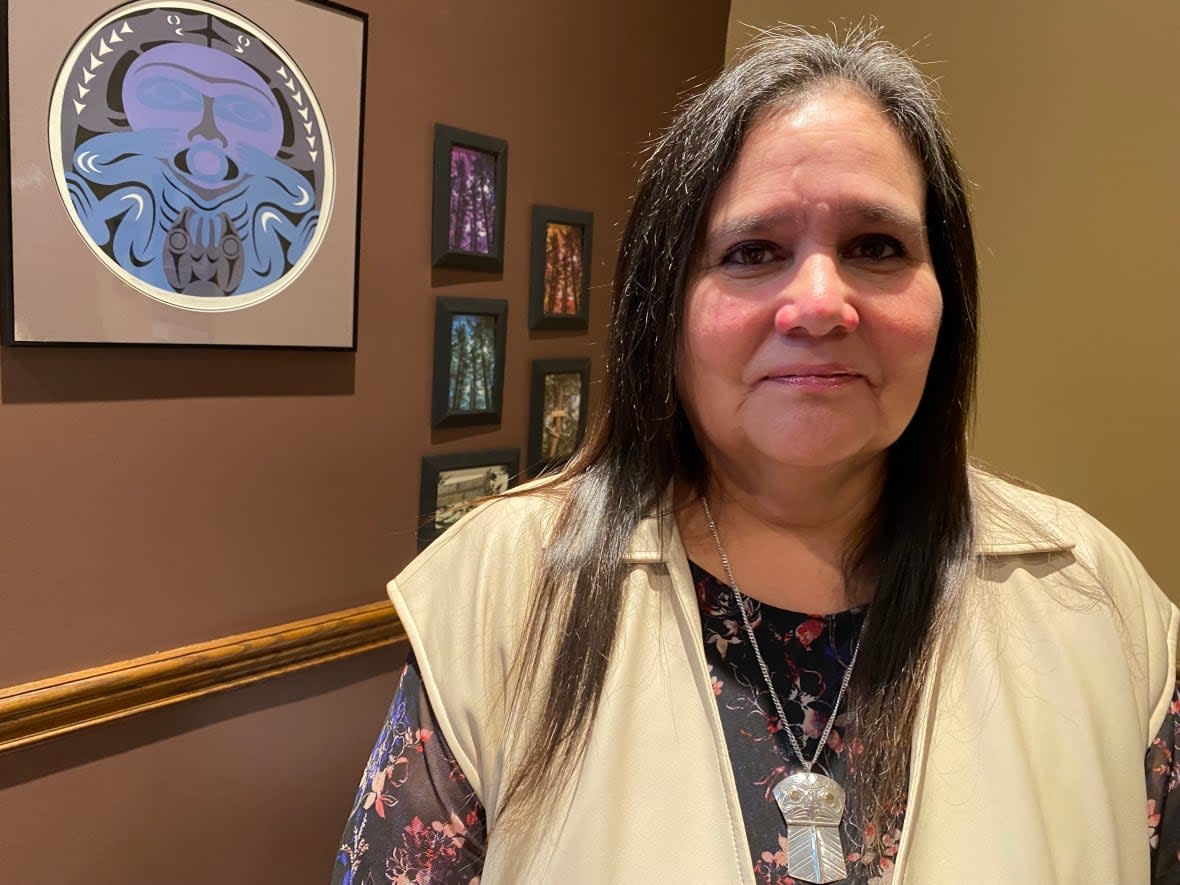UWindsor's senior adviser on Indigenous relations has only scratched the surface

Beverly Jacobs says she's seen a shift since being named the University of Windsor's senior advisor to the president on Indigenous relations a year ago.
But as she reflects on the last 12 months, Jacobs, whose traditional name is Gowehgyuseh, meaning 'She's visiting,' says she has only scratched the surface in her journey.
"It's been a lot of work," said Jacobs, who is Mohawk, Bear clan, from Six Nations of the Grand River. "So initially, when I began in January, part of the biggest task was to Indigenize and decolonize the university."
The University of Windsor release announcing Jacobs' new role said over the next two years, Jacobs will have many roles.
"[Jacobs will] pursue priorities to improve relationships with Indigenous peoples — students, faculty, staff, Indigenous communities and organizations," the university said.
"[Jacobs will] guide the development of the new Indigenous space on campus; collaborate on the development of respectful and sustainable decision-making and consultation processes related to Indigenous matters, and help the university chart its path as it begins to take more comprehensive action towards Indigenization and decolonization."
'A lot of difficult situations'
Jacobs is a familiar face on campus. During the last five years, she has been an assistant professor in the Faculty of Law and had tenure within three, before becoming the associate dean. Eventually, she became dean.
She said shifting the way people think isn't always easy.
"There's been a lot of, I would say racism," Jacobs said. "There have been a lot of difficult situations that the university has had to deal with. In a respectful way, a lot of times people don't even realize they're racist. They don't even realize that some of the things that they say are not appropriate."
That is just one of many things Jacobs is trying to change. And she said it all starts with education.
"Sometimes it's because of the lack of education or the lack of knowledge of Indigenous people," Jacobs said. "In the last year, I have made a really positive shift in the way that the institution is addressing and dealing with Indigenous peoples, Indigenous knowledge, Indigenous research."
Relationships beyond borders
Another positive shift came when the university was willing to pivot its strategic plan, where planning started before Jacobs began her new role.
"When I started, I had talked about, if we're going to talk about strategy with Indigenous peoples, with Indigenous faculty and staff and students, we really need to know what is actually happening on campus," Jacobs said. "We need to know about the relationships with Indigenous peoples and communities surrounding the university. We need to recognize the constitutional rights of Indigenous peoples and knowing that there is a difference in the relationship. That Indigenous people need to be respected for their lands and territories."
She said the university listened to what she was sharing and shifted its focus, to ensure that there is an Indigenous strategic plan. And she's leading the process to ensure the university has a strong relationship with Indigenous communities and Indigenous organizations surrounding the University of Windsor.
"[That] also includes the Indigenous peoples in the U.S., because Indigenous peoples existed long before the border crossed our territories," Jacobs said. "So it's looking at respecting those relationships, resolving any historical relationships in the past that might have caused some distrust. So that's part of my task, to help the president and his relationship with Indigenous peoples and the university."
Among other successes: establishing a Knowledge Holders Council, and bringing in elders and ensuring that their knowledge is respected by the leadership and that becomes part of the leadership, so they will be part of the governance process.
The goal of an Indigenous co-presidency
Over the next year, she wants to see the establishment of a permanent Indigenous executive leadership position and is advocating for an Indigenous co-presidency.
As for what Jacobs wants to see overall, she said eventually she'd like everyone to have knowledge about who Indigenous people are.
"Indigenous students shouldn't be educating in the classroom with the professor who should be educating," Jacobs said. "Their safety is huge, so cultural safety is established here at the institution for faculty, staff and students.
"And as long as there's an Indigenous voice in every level within the institution, that's where I see success," she said.
"When we have students who are graduating and feeling really confident about who they are and where they're coming from, and feeling that love, and that they know that they'll come out from their education with that strength and who they are."


